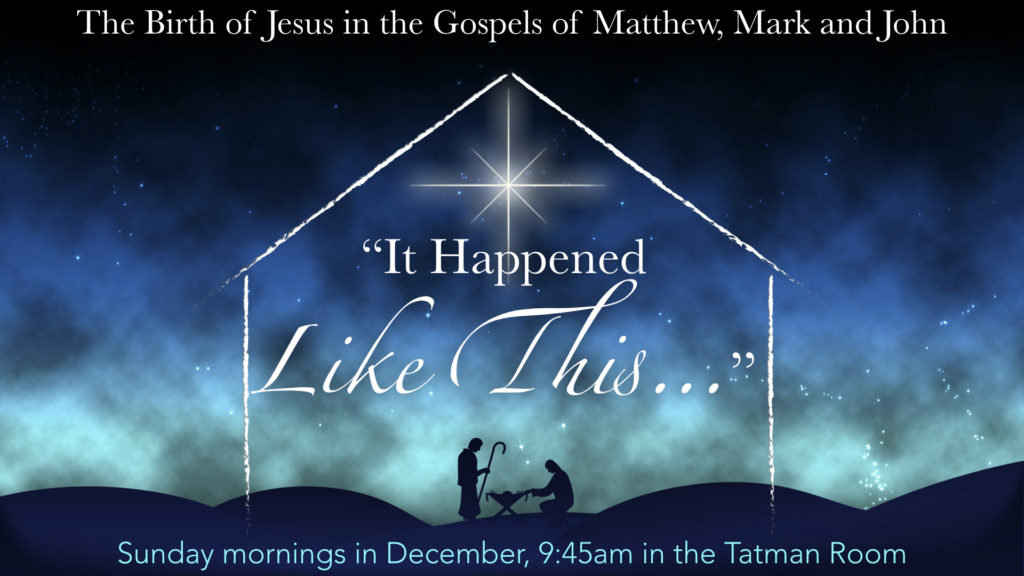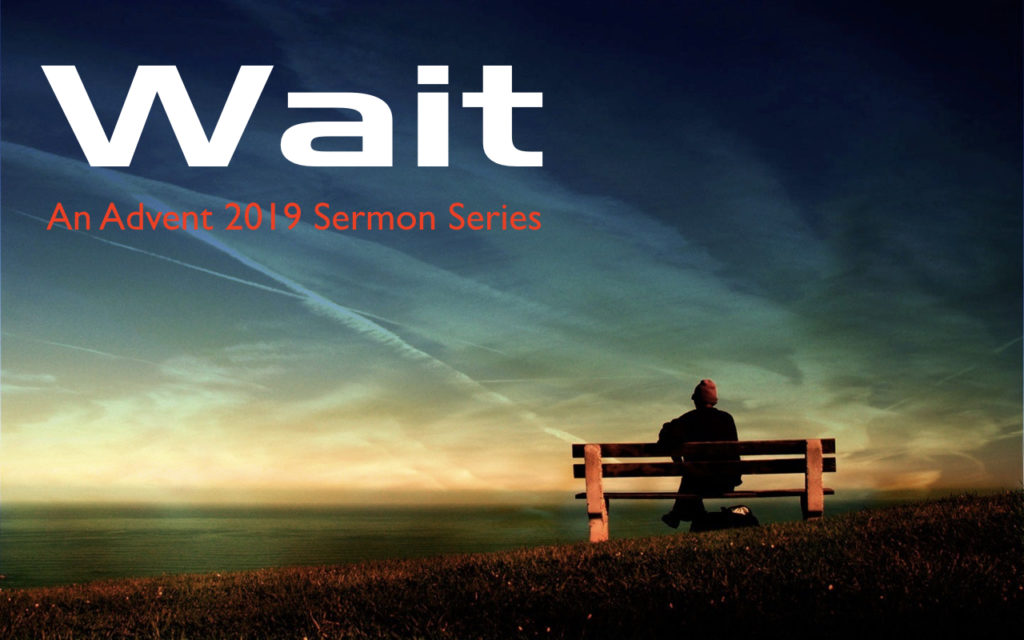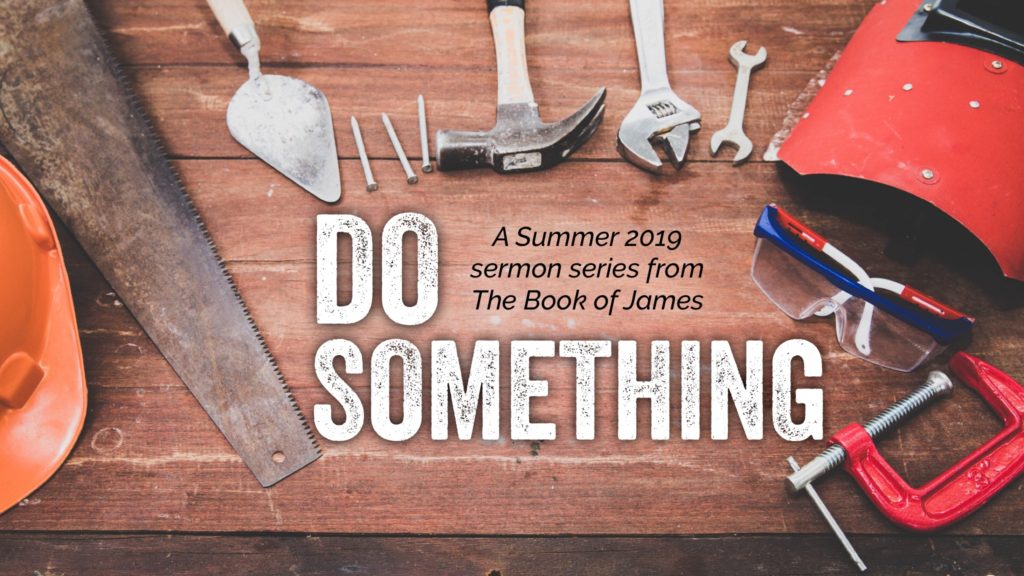
“It Happened Like This…” – An Advent Sunday School Class

Read more...

Pastor’s Corner – December 2019

“Return, O LORD! How long? Have pity on your servants!” — Psalm 90:13
The Christian calendar begins, not with January 1st, but instead with the first Sunday in Advent. It’s an interesting decision that the early church fathers made in doing this. Interesting because the Christian year begins not with resolutions and activity, but with waiting. Advent is an intentional season of preparation and pause, a time to reflect and prepare for the celebration of the coming of the Lord’s Messiah, Jesus Christ. There is great wisdom in this decision, particularly for our current times. We live in a culture of hurry and rush and activity, the last thing we want or like to do is wait for anything.
By starting the year with a season of waiting, we are invited to settle into a different rhythm of life and living, a rhythm that is ultimately about trust. Trusting in the God who created Time, trusting in the One who has set His plans in motion and will see them through, trusting that there is One who knows and understands more than we do, trusting that He is good and that He is love.
So the Christian calendar begins with a reminder that there is a holiness and a righteousness in waiting. But there is a hard-ness and challenge in waiting as well. The Psalmists cry out, with great regularity, “How long, O Lord?” Even as they wait on the Lord, they express their frustration, their discontent. And in that we are shown that there is such a thing as a holy discontent.
But as much as we are waiting to celebrate the birth of our Savior, the season of Advent points to an even more significant event, an event most of us usually forget is yet to and actually is going to happen. The Hebrews waited over 500 years for the Messiah to come the first time. We’ve been waiting nearly 2,000 years for him to return. May our lives be lived with the faith that comes from knowing our Savior’s return is imminent, with the hope that comes from knowing that what is broken will soon be made right, and with the love for those who don’t yet know that their Messiah has already come once and will come again.
“He who testifies to these things says, “Surely I am coming soon.” Amen. Come, Lord Jesus!” — Revelation 22:20
Blessings,
Rev. David Garrison
Read more...

Pastor’s Corner – November 2019

So then, just as you received Christ Jesus as Lord, continue to live in him, rooted and built up in him, strengthened in the faith as you were taught, and overflowing with thankfulness. (Col. 2:6–7)
Rev. David Garrison
Read more...

Pastor’s Corner – October 2019

But if there is no resurrection of the dead, then not even Christ has been raised. And if Christ has not been raised, then our preaching is in vain and your faith is in vain… And if Christ has not been raised, your faith is futile and you are still in your sins. Then those also who have fallen asleep in Christ have perished. If in Christ we have hope in this life only, we are of all people most to be pitied. (1 Cor. 15:13–14, 17–19)
Rev. David Garrison
Read more...

Pastor’s Corner – September 2019

For the love of money is a root of all kinds of evils. It is through this craving that some have wandered away from the faith and pierced themselves with many pangs. (1 Tim. 6:10)
My parents raised me to believe that there are three things you don’t talk about in polite company: religion, politics and money. We can’t (and probably shouldn’t) avoid talking about that first one in church, and while this usually hasn’t kept me from talking about the other two, but every time I do, I hesitate…particularly when it comes to talking about money. Especially when it comes to preaching about money. Not only do I not like preaching about money, I’ve never met a church member who likes or wants to hear sermons on money. As someone once told Bob Mills after a sermon, “Now you’ve gone from preaching to meddling.”
However, there are two truths about money that I think ensures it’s worthy of our time and attention on a Sunday morning. First, the reality is that everyone is always talking or thinking about money. As Carey Nieuwhof writes, “People talk about it, argue about it, and try to make their plans around it. Almost everyone in your church and community thinks about money daily and talks about it daily. They may even struggle with it daily. It’s just that few people step up to help them with it” (underlined reference links can be found in the online version of this article). If it gets that much of our mental energy and time, isn’t it something we should seek biblical guidance regarding?
Which leads us to the second truth: Did you know that the Bible talks about money more than any other subject? As an article at crosswalk.com points out, “It is worth noting that money is such an important topic in the Bible that it is the main subject of nearly half of the parables Jesus told. In addition, one in every seven verses in the New Testament deals with this topic. The Bible offers 500 verses on prayer, fewer than 500 verses on faith, and more than 2,000 verses on money.” As the article states, “Why such an emphasis on money and possessions? There is a fundamental connection between our spiritual lives and how we think about and handle money.”
So for the next six weeks, beginning September 8, we’re going to be talking about money. We’ll spend the first three weeks talking about the connection between our spiritual lives and our focus on money and the second three weeks understanding what the Bible says about why and how our giving to the Lord is an important part of our growth as disciples of Jesus Christ. While certainly a subject no one wants to talk or hear sermons about, I think we’ll find a way to a deeper, richer life in Christ as a result.
But as for you, O man of God, flee these things. Pursue righteousness, godliness, faith, love, steadfastness, gentleness. (1 Tim. 6:11)
Blessings,
Rev. David Garrison
Read more...

Pastor’s Corner – August 2019

“Peacemakers who sow in peace raise a harvest of righteousness.” (James 3:18)
Summer doesn’t officially end for another month and a half, and given that we live in central Virginia, it won’t begin to feel like fall until sometime in October, but with kids going back to school in just a few weeks, it seems like fall is already here. And with the fall comes the harvest season. In our summer sermon series, Do Something, we’ve seen that James uses the image of the harvest a lot throughout his letter.
I’ve been amazed at the way the flowers and plants in our yard have absolutely blossomed and exploded this year. As much as we’d like to take credit, this isn’t really because of anything my wife and I have done. Someone else put these plants in the ground long before we moved in, and last year’s incredible rainfall nourished the soil richly over the winter and into the spring. We put a lot of effort into weeding and mulching early on, but haven’t done a good job keeping up with it.
“What, after all, is Apollos? And what is Paul? Only servants, through whom you came to believe—as the Lord has assigned to each his task. I planted the seed, Apollos watered it, but God made it grow. So neither he who plants nor he who waters is anything, but only God, who makes things grow. The man who plants and the man who waters have one purpose, and each will be rewarded according to his own labor. For we are God’s fellow workers; you are God’s field, God’s building.” (1 Cor. 3:5–9)
Such it is with our spiritual lives. Often we find that spiritual growth happens, regardless of what we do or don’t do. But some simple truths are still central. First, you harvest what you plant. Second, while the seeds grow naturally, there are things we can do to encourage their growth, such as watering, weeding and fertilizing that create an environment conducive to their flourishing.
Much of what we seek to do here at Northminster is help you with those two aspects of your walk with the Lord – planting seeds of faith and spiritual growth, and cultivating the soil of your heart and soul to nourish those seeds. As we head into the harvest season, be on the lookout for opportunities to check the health of the soil of your soul as well as opportunities to “do something” with the growth that God has been doing in you. If there is a particular way you’d like some help in your spiritual growth, be sure to let one of our elders or me know.
Blessings,
Rev. David Garrison
Read more...

Pastor’s Corner – July 2019

“What good is it, my brothers, if a man claims to have faith but has no deeds? Can such faith save him?” (James 2:14)
“But the fruit of the Spirit is love, joy, peace, patience, kindness, goodness, faithfulness, gentleness and self-control. Against such things there is no law.” (Gal. 5:22–23)
“But someone will say, “You have faith; I have deeds.” Show me your faith without deeds, and I will show you my faith by what I do. You believe that there is one God. Good! Even the demons believe that—and shudder.” (James 2:18–19)
Read more...

Pastor’s Corner – April 2019

“Are you tired? Worn out? Burned out on religion? Come to me. Get away with me and you’ll recover your life. I’ll show you how to take a real rest. Walk with me and work with me—watch how I do it. Learn the unforced rhythms of grace. I won’t lay anything heavy or ill-fitting on you. Keep company with me and you’ll learn to live freely and lightly.” — Matt. 11:28-30 THE MESSAGE
Out of Rhythm
About 5 years ago, my kids and I were swimming at a friend’s house and I found I couldn’t catch my breath. Even sitting still, I was breathing heavily and my heart was racing. I had no idea what was going on. Erring on the side of caution, my wife took me to the ER and we found out my heart was in atrial fibrillation. The ER staff took great care of me, and a few hours later we were on our way home. A couple of years later, my family went to Sliding Rock in North Carolina (pictured). I’ve never experienced water as cold as that. Hitting that water was such a shock that it not only knocked the wind out of me, it sent my heart into a.fib a second time. Just like the first time, I couldn’t catch my breath even standing still and my heart was racing. Having experienced it before, I knew immediately what the problem was. This trip to the ER resulted in an overnight stay, and somewhere around 15 hours later, my heart returned to normal rhythm on its own. Fortunately, other than these two instances, I have a very healthy heart and haven’t had any further issues. Some folks go into a.fib and aren’t aware of what’s going on for several days. When your heart gets out of rhythm, it affects everything else.
Life Arrhythmia
I think many of us spend our lives in a kind of “life arrhythmia.” Our lives are out of rhythm and we often don’t even realize it. We live and move and work in something of a semi-frenzy, desperately trying to keep up just enough to catch our breath every now and then. We yearn for rest, but find that even in the moments of rest (whether a couple of hours or a week of vacation), we still can’t catch our breath. Our souls weren’t meant to live like this, and when we spend our lives out of rhythm, it affects everything else. Sometimes we know what the problem is; often we don’t. If we continue to try to force ourselves to live according to the rhythm of the world around us, we’ll never get in sync and will be constantly racing to keep up. We need to look for a different way.
The Unforced Rhythms of Grace
Read more...

Pastor’s Corner – March 2019

“Cast your cares on the LORD and he will sustain you;he will never let the righteous fall.” — Psalm 55:22
Teach Us To Pray
More Than Knowing How
A Spiritual “Reset” Button
Read more...

Hope Springs Eternal

And Elijah said to Ahab, “Go, eat and drink, for there is the sound of a heavy rain.” So Ahab went off to eat and drink, but Elijah climbed to the top of Carmel, bent down to the ground and put his face between his knees.“Go and look toward the sea,” he told his servant. And he went up and looked.“There is nothing there,” he said.Seven times Elijah said, “Go back.”The seventh time the servant reported, “A cloud as small as a man’s hand is rising from the sea.”So Elijah said, “Go and tell Ahab, ‘Hitch up your chariot and go down before the rain stops you.’” (1 Kings 18:41–44)
Because of the LORD’S great love we are not consumed, for his compassions never fail. They are new every morning; great is your faithfulness. I say to myself, “The LORD is my portion; therefore I will wait for him.” The LORD is good to those whose hope is in him, to the one who seeks him; it is good to wait quietly for the salvation of the LORD. (Lam. 3:22–26)
Read more...
